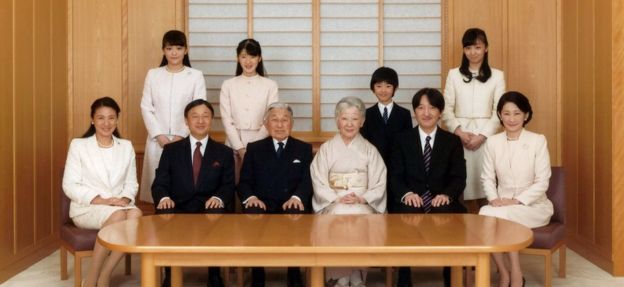But there is no provision under existing law for him to abdicate and be succeeded by Crown Prince Naruhito.
The bill will now pass to the parliament, where it is widely expected to be passed.
It would be the first time a Japanese emperor has stepped down since Emperor Kokaku in 1817.
Chief Cabinet Secretary Yoshihide Suga told reporters on Friday that the government "hopes for the smooth passage of the legislation".
The princess, the palace and the shrinking royal line
In pictures: Japan's Emperor Akihito
Japanese Emperor Akihito's 2016 address in full
Akihito, who has had heart surgery and was treated for prostate cancer, has been on the throne since the death of his father, Hirohito, in 1989 and is loved and revered by many Japanese.
In a rare address to the nation in August, he said he was beginning to feel "various constraints such as in my physical fitness" which caused him to "contemplate on my role and my duties as the emperor in the days to come".
The emperor is constitutionally barred from making any comments on politics, so he could not say explicitly that he wanted to stand down.
The bill approved by the cabinet on Friday mentions the widespread public support for the emperor's wishes, Japanese media reported.
It says that on abdication, Crown Prince Naruhito would immediately take the Chrysanthemum Throne, but that neither he nor his successors would be allowed to abdicate under the same law.
The government will set the date for the abdication, which is expected to be in December 2018.
Women are not allowed to inherit the throne and so Princess Aiko, the daughter of Crown Prince Naruhito, cannot succeed her father.
A debate about whether or not a woman should be able to ascend the throne was triggered in 2006 when the emperor had no grandsons, but was postponed after a boy was born to the imperial family.
The discussion about the role of royal women arose again this week when it was announced that Princess Mako - Akihito's eldest grandchild - was to be engaged to a commoner.
Under Japanese law, the 25-year-old will have to give up her royal status and enter private life after her marriage.

[BBC SOURCES]


0 comments:
Post a Comment